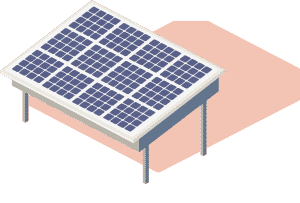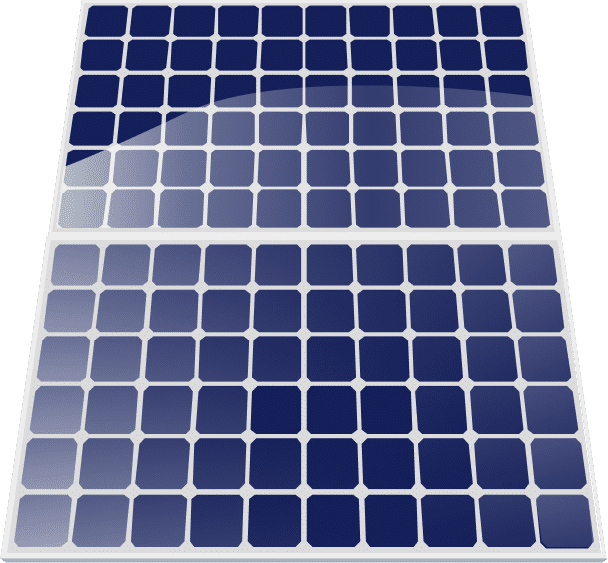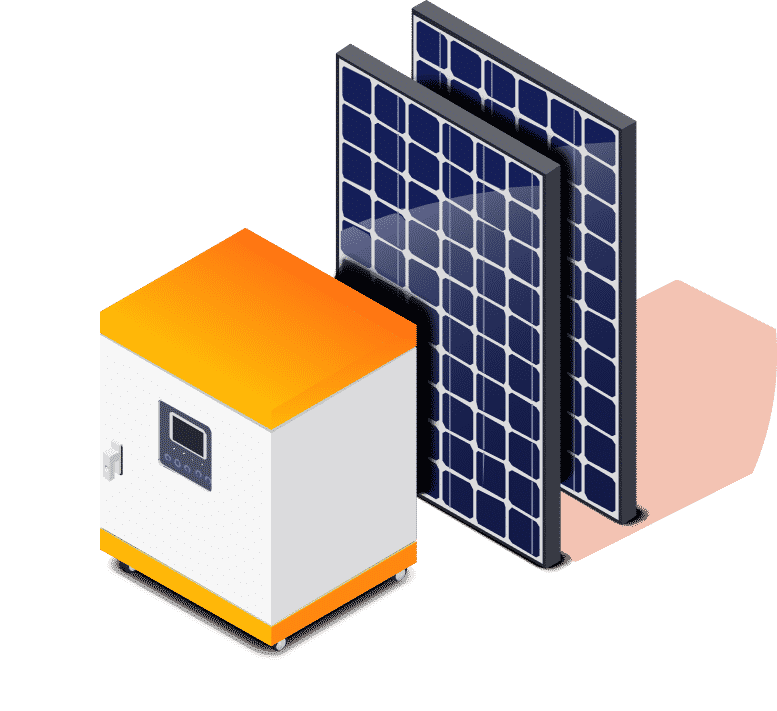What are the benefits to solar electricity?

What are the benefits to solar electricity?
It’s hard to ignore the importance of solar energy. Going solar could bring a high return from your investments, and not just for financial reasons, but also to protect the environment as well as public health. As people discover the many benefits of solar energy as well cost of installation drop the solar energy market is becoming more popular among people who own businesses and homes. There are numerous reasons why solar energy is a great alternative if you’re curious about its importance.
Its Evolution of Solar Energy
Over the past twenty years the usage of solar energy has increased steadily. More people are realizing the huge benefits of using solar panels. The demand for solar panels has risen by 0.34 gigawatts up to 97.2 by 2008; which is enough to power 18 million homes. The increased demand has led to lower the cost of solar panels. Solar panel prices has dropped by 70% since 2014. As per the US Department of Energy, at least seven percent of American homes will be equipped with rooftop solar PV systems by 2030.
What exactly is solar power?
Sunlight is the source that gives rise the solar power. The sun power our planet. It supplies the energy needed to sustain our environment and increase our population, no matter whether you are aware of it. The sun’s energy is sufficient to satisfy our every need. It is estimated that the US Department of Energy estimates that 173,000 terawatts of sun energy hit the earth each second, more than 10,000 times the total global consumption of energy. The sun can be used to generate electricity that is clean, renewable, and safe. Solar energy can be used to provide heat, light, and other electricity-dependent needs in homes and buildings.


Solar Panel System Benefits
Solar energy offers many advantages. It can reduce your electric bill, increase the value of your home, reduce your carbon footprint, combat rising electricity prices and even earn money back on your investment. However, solar energy does have some drawbacks. It doesn’t work on all roofs and can cost a lot of money to set up.
Installing a solar system on your business or home will provide you with many advantages. These are the most significant advantages of solar energy that you should keep in mind.
- Solar reduces/eliminates electric bills
- Solar panels can boost the worth of your home
- Going solar lowers your carbon footprint
- Solar panel systems can aid you to cut down on the rapidly rising energy costs.
- Solar investments can earn you money
- Solar energy is versatile
- You can sell solar electricity on the grid
1. Solar energy has the potential to dramatically cut or eliminate your electricity bills
The top benefit of solar panels is in the fact that they allow you to create your own electricity and become less dependent on the electric utility. This can help cut down on your monthly electric bill. Solar panels have a lifespan of between 25 and 35 years. This means that you can cut down on your electricity costs for many years. The cost of solar panels has decreased by 70% over the past decade. However, the cost of electricity has been increasing by about five percent and this trend of rising electricity costs is likely to persist. Solar power can help you reduce the cost of electricity. This calculator can give you a personalized estimation of your long-term savings on energy. Additionally, you can see the projected upfront costs and 20-year photovoltaic savings with customized projections.

2. Solar energy can boost the worth of your home
The majority of homeowners in region are interested in solar panels, but they aren’t equipped with the time or knowledge to put them up. Recent studies have proven that solar panels can boost the value of a property. This is a consumer reality. The second benefit of solar panels can be utilized to offset the negatives we discussed earlier. Even if you don’t plan to move anytime soon your investment into solar panels could pay for itself when you decide to sell your home.
3. Solar reduces carbon emissions
Solar energy is a sustainable, pure source of energy that has the potential to help reduce greenhouse gas emissions, such as carbon dioxide. It also aids in reducing the impact that we make on the natural environment. Solar energy is not like other fossil fuels like coal and oil. It is not directly responsible for environmental pollution (such like carbon dioxide) to release into the atmosphere or into the water supply. Solar energy is better for the environment than nuclear energy.
5. Solar can make you money and you can earn the value of the investment you made
Solar panels can generate bill savings and make a profit thanks to the many great solar incentives available in the TX. Net metering, as well as SRECs, or solar renewable energy credits (SRECs), are two of the key benefits that solar panels offer. They allow you to earn credit on your bill or even earn cash as solar panels generate electricity. These are the cases where you are paid for the electricity produced by your solar panels. These incentives are available within certain state. You can expect both the short- and long-term rewards from your solar investment.
6. The most versatile form of alternative energy is solar.
Solar energy is able to be used in nearly every environment, in contrast to other alternative energy sources like wind energy which requires large open spaces and high wind changes. Solar energy is a versatile alternative to renewable energy. Although solar panels produce less power during cloudy days and in regions which don’t receive enough sunlight, they can still be effective. Solar energy is an excellent investment, regardless of the location you reside in.
7. You can sell solar electricity back to the grid
You could qualify for net billing , based on the area you reside in. Net Metering, an electric billing tool, stores the excess power generated by your solar panels. Net metering credits you with the energy your solar panels produce, but you don’t use. You may be able to receive credit on the cost of energy you don’t use and, in the end, sell all the energy generated by solar panels back to the grid that supplies electricity.
Who benefits from solar energy?
Solar power systems produce pure, clean electricity from sunlight. Solar panels can be put in at your residence to cut down the greenhouse gases that are released. The traditional electricity source is fossil fuels like coal and natural gas. In order to produce energy, fossil fuels release harmful gases that are the major causes of global climate change in addition to air pollution. Fossil fuels are not only detrimental to the environment, but are also a finite resource. That’s why the cost fluctuates and is prone to increase quickly.
Health of the public can also be improved with renewable energy. Natural gas and coal plants cause polluting air and water that is harmful to the environment. However, replacing fossil fuels by renewable energy sources such as solar power could lower premature deaths and increase general healthcare expenses.
While fossil fuels use a lot of water resources, and could create water pollution solar power needs little or no water in order to function. Solar power doesn’t harm water resources and it doesn’t stress the world’s water supply.
In the event of severe droughts or heat waves solar power is able to be used. Natural gas, coal and nuclear power require huge amounts of water to cool. Electricity generation is vulnerable to extreme heat waves and droughts as we have seen in recent years. Solar power systems do not require water to generate electricity.
Solar power can also generate jobs in clean energies. The location has been a leading player in clean energy. Innovative and forward-thinking businesses will continue to embrace the evolving environment of energy production and transition to renewable sources.
If you’re planning to build your greenhouse, you might want to check out these LEED credits: solar orientation, passive solar{
How much can you save?
It is possible to estimate the amount of energy savings each year by knowing in advance how much the solar power plant will cost and how much energy it will produce.
This calculation is tricky because it all depends on what you are paying for electricity. Utilities charge residential customers a fixed amount for electricity regardless of how often they are used. Instead of compensating for the higher cost of electricity production at peak for homeowners, solar power systems are used to offset the electricity price that customers pay. This is closer to the average price for electricity generation.
Many TX utility companies have implemented pricing systems that allow homeowners to pay different rates throughout the day to reflect the cost of electricity production. This is why you will pay higher rates for the afternoon, and lower rates at night. A location with this kind of variable rate may consider installing an array of solar panels that are PV. Solar power could be able to offset the most expensive electric power.
It will be contingent on how many rate changes are permitted under the plan and the timing they occur. Similar pricing strategies are employed by utilities in specific regions. The rates may vary according to seasonal demand fluctuations. Solar energy is more expensive if it has higher summer rates.
Tiered pricing plans are employed by some utilities to alter the marginal price of electricity as the consumption grows. This allows the advantages of a solar system to be determined by the amount of energy is consumed. In some areas, prices are soaring as consumers consume more. Homes with huge energy consumption may be in need of solar arrays to offset high-cost consumption.
It could be possible for some houses to sell solar energy back into the grid to earn money. This is known as net metering in the Garland. Residential consumers utilize the electricity they generate through the solar array to offset the power consumed elsewhere. Monthly electric bills are a measure of the amount of energy consumed. There are various guidelines and policies regarding net metering that are in place for every region. For more details, homeowners can go to the database. It is also recommended to contact the local utility.
How does solar energy impact our society?
Solar projects that are community-based can be beneficial to society including lower heating bills for low income people, less dependence on utilities that are public and a healthier environment because of less pollution, and job creation.
